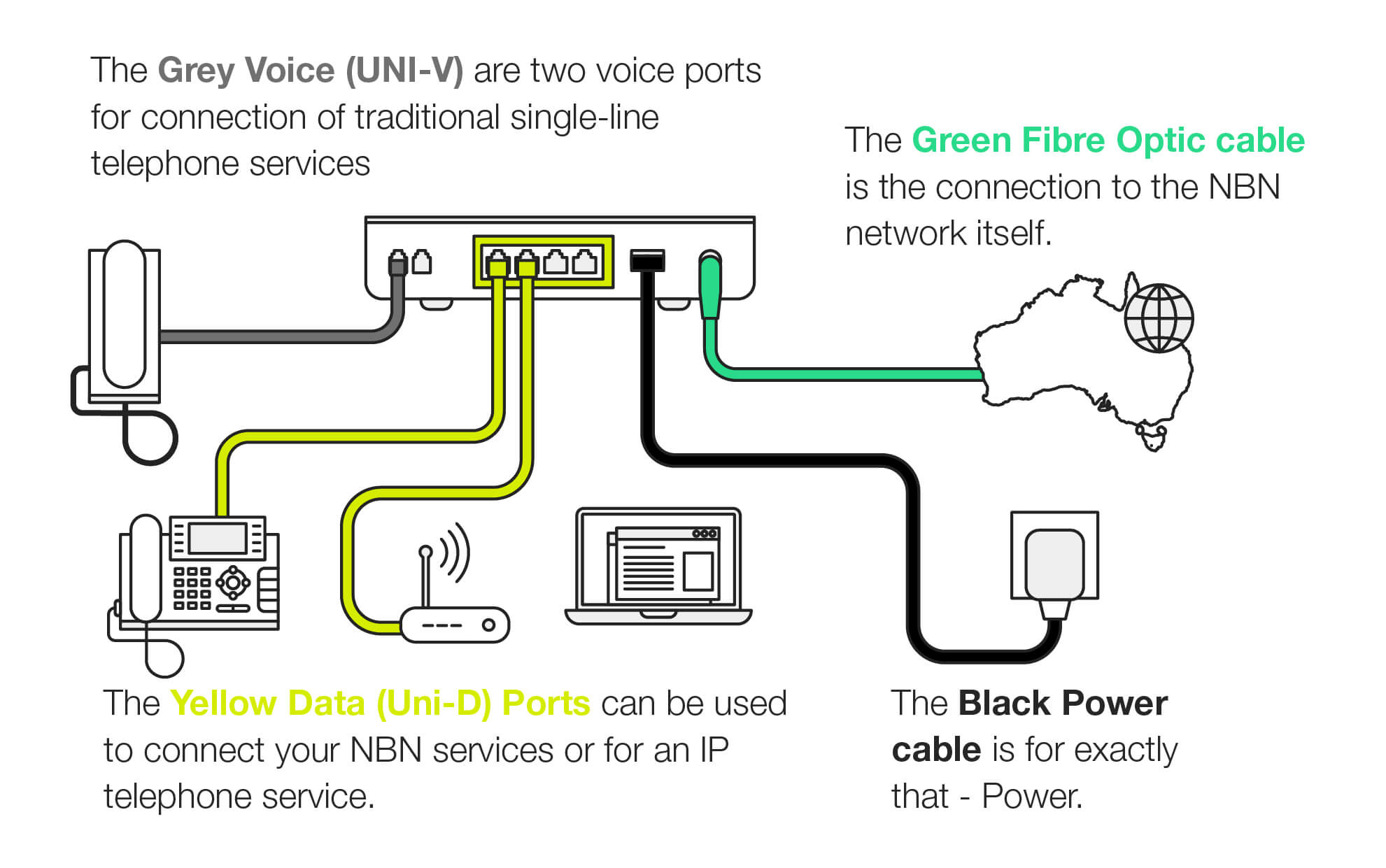If you think the NBN has been getting a bit of a bad wrap, it’s about to get worse. While we’re mostly hearing about speeds and installation woes, we’re not hearing a lot about one of the biggest issues all Australians face with the NBN: power.
As this article points out, recent natural disasters and emergencies across Australia have highlighted the fact that, without an internet service, people and businesses do not have access to a landline phone.
Why NBN power issues are your concern…. or will be
Traditional phones don’t require a power source, so whenever we’d have a blackout in the past, we’d be able to use our landline phone to contact emergency services. With the NBN, all traditional phone services will be replaced by VoIP services, which will use your internet service to make phone calls. In order to access your internet service, your modem, connected to your NBN service, needs to be connected to a power outlet.
How your NBN phone service will work
Like all things NBN, it’s complicated. There are several different ways in which the NBN could be delivered to your business:
- Fibre to the Premises – Fibre directly to your business.
- Fibre to the Node – Fibre to the nearest node, the copper to your premises
- Fibre to the Basement – Fibre to the basement of your building, then copper to your office
- Hybrid Coaxial Fibre – this is still something that NBN is ‘trialling’, so they will not reveal too much information about how it will work. This means we can’t, either.
- Fixed Wireless – NBN is transmitted to your office from a public telco tower
- Satellite – NBN is transmitted to your office from an NBN satellite (only in remote and some rural areas)
The type of NBN you get isn’t up to you, but it does make a difference to how you will use your phones. In each case, you will have a Network Termination Device (NTD) – also known as an NBN Connection Box – installed in your office, into which you connect your modem.
The only case in which your NBN Connection Box will provide direct access for a phone is if you have Fibre to the Premises installed. It will have two Grey (Voice) Uni-V ports, along with the usual 4 Yellow (Data) Uni-D ports, and you can plug your old analogue telephones or devices into them once they are activated.

NBN Connection Box
However, most companies will not use the grey Uni-V ports to run their phone systems, and will instead use the internet via the Uni-D to run their VoIP phone system.
In every other instance, you will have to connect your IP phone into the modem that’s connected to your NBN box. Both your modem and NBN box must be powered for your phone to work. It can get complicated, and confusing, so head over to this page if you’d like to find out more about how NBN phone services work.
Power Issues and your NBN phone service
Fibre to the Premises connection are the only kind that you can connect directly to your existing phone, and they are also the only kind that come with an optional backup battery unit. If your power goes out, your NBN connection box will continue to work for anywhere between 4-6 hours if you have the optional battery unit. So that’s good news for you if you’re getting Fibre to the Premises.
However, in most cases, businesses who have Fiber to the Premises are likely to be using their internet connection via the Uni-D ports to run the phone system. So are likely to connect the phone system hardware that is the brains of the phone system directly to the internet and the below advice will apply to you.
For the rest of us who run our phone systems by connecting to the internet via a modem, there is no backup power supply built into the system. This means that, if there’s a blackout, you cannot access the internet and you cannot make phone calls from your office phones.
To continue running your phone system both your phone system hardware and internet modem that runs your phone system must be powered.
How can you get around NBN Power Issues?
First and foremost, if there’s a natural disaster you will hopefully be able to use your mobile phone to get help if needed. But for those less life-threatening blackouts, when the power goes down your entire NBN phone system will go with it.
Redundancy
Many businesses have avoided having a redundancy system in the past because of the added expense it can bring, but with the NBN it is more important than ever to have one in place.
If you have a traditional on-premise phone system that uses the NBN to make and receive calls, you should first ensure you have a backup battery supply that can kick in if the power goes out.
If this fails and you have pre-nominate a number that call’s should delivered to if no handsets can be found, then the system will automatically divert all calls to that number. However, if you have not setup redundancy before a power outage occurs, you will have to call your phone line providers to have your numbers diverted.
If you have a cloud-based NBN phone system, redundancy is slightly easier. Like traditional phone systems you can setup a diversional that will automatically happen if a handset is not reachable. If you have not setiup a ‘failover’ number you can call your phone system supplier who will be able to set up a diversion as needed.
Alternatives To The NBN?
Many people don’t realise that there are a lot of alternative options for high-speed internet other than the NBN. In fact, many of them are a lot better than the NBN; faster, more reliable, and guaranteed bandwidth.
Depending on the size of your business it could actually be a better business decision to avoid the NBN entirely and opt for something like a Fixed Line Ethernet, SHDSL, or EFM service for your office. If you’d like to find out more about data services that aren’t the NBN, our carrier partner SpringCom offers a lot of information about them all.
Conclusion
To sum up, you’re going to have to get the NBN, which means that you’re going to have to confront the potential power issues associated with it. No matter what type of phone system you have, there are ways for you to prepare your NBN phone system for a blackout, but thinking ahead will give you a greater peace of mind than having to try to deal with a sudden loss of service.
Have has your business prepared for power failures and the NBN?







